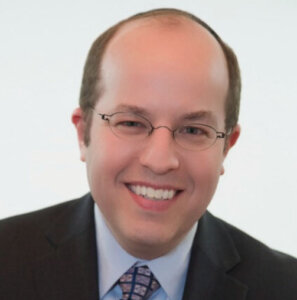Do Jews believe in the afterlife?
A rabbi explains how Jewish mysticism teaches that the soul is ever-present and hovering over its living relatives

Illustration by Benyamin Cohen/Midjourney
Years ago when interviewing for a rabbinic position in Denver, a longtime member of the synagogue who has since become a very close friend asked me the following question:
“Rabbi, when I die, will I be reunited with my parents?” There was no question that it was a deep inquiry for an initial meeting, but I answered with confidence and immediately: “Yes, you will be reunited with them.”
The Zohar, the foundational work of Jewish mysticism, teaches that the soul is indestructible and eternal. The body is simply a vessel.
The concept of an afterlife is easier to understand when we recognize that we are not only a complex organism of body mass, but possess a spark of the divine — our consciousness, a call inside of us for meaning and purpose, a yearning to love and be loved, to give and seek deep joy.
In the words of Ray Charles, “What is a soul? It’s like electricity. We don’t really know what it is, but it’s a force that can light a room.”
At the moment of someone’s death, we exhibit extra sensitivity in front of the deceased. For instance, we do not recite blessings in front of the person. Why? Jewish tradition teaches that the soul is ever-present and hovering over the person. It would be considered inappropriate to recite a blessing in the presence of a soul who is no longer synthesized with a body to do Jewish commandments. This is just one of many examples affirming the living soul.
I have officiated at hundreds of funerals. During the burial, I explain to the family and friends that we are not placing earth on the person but only the body, the vessel. The soul of the person is looking down on us and gaining comfort as we are helping the body and soul separate and be released to reunite with God. A soul is like a candle that lights many flames.
The wind is one of the most vivid manifestations of the soul. Jewish mysticism teaches that the soul is like the wind because just as the wind is not something we can see but feel, so too is the soul. Almost every time, when we finish the burial, the coffin is covered with earth, and I and others feel the wind. This is affirmation that the soul is now free. Although we may not see the person in our lives, we will feel in presence in ways we never could have imagined.
My mother, for example, is very much alive. She died suddenly at the age of 44 more than three decades ago, but I still feel her presence. Little did I know that a memory with her father, my grandpa, offered me one of the deepest sources of comfort.
When I was a child growing up in Atlanta, I will never forget flying a kite with my grandfather and the joy I felt one day when the kite flew so high that I could no longer see it in the clouds. However, I knew it was there because I could feel the tug.
Many years later, I learned an idea from Rabbi Joseph Soloveitchik, an influential Modern Orthodox philosopher of the 20th century, who explained that this phenomenon describes the status of a soul no longer in a body. We may not be able to physically hug our loved ones who have died, but we can feel their tug. When we speak about them, seek to emulate their values in our life, do a good deed in the memory, the tug grows stronger and fuels the bond between heaven and earth, the souls and the people still alive.
Finally, a main mission in Judaism is to elevate this world, the here and now. The existence of the soul in each of us calls on us to make the most of our lives on this earth.
The Talmud teaches that before we are born, regardless of our faith, every human being is guided by an angel to learn the secret of a meaningful life. Moments before we are born, the angel taps us underneath our noses and we forget everything we have learned. This is the source of the indentation underneath our noses.
In truth, the secret is not forgotten but buried deep within. Jewish thought teaches that when we are born, we enter the world with this divine light driven into our unconscious. Decades pass until we are called to leave our earthly existence. Moments before we die, we are also greeted by an angel. Chillingly, the angel is not a stranger. We recognize the angel. It is the same angel that shared with us the light at the very beginning of our lives. The angel will ask each of us two questions.
Did you reveal the light that I implanted within you? Did you share your light with the world?
How well we answer these two questions determines whether we led our lives with joy, meaning, impact and inner peace.
Yes, Jews do believe in an afterlife. It is not the goal of our existence. We can access the deepest pleasures of life now. It depends on how we live our lives each day.
A message from our Publisher & CEO Rachel Fishman Feddersen

I hope you appreciated this article. Before you go, I’d like to ask you to please support the Forward’s award-winning, nonprofit journalism so that we can be prepared for whatever news 2025 brings.
At a time when other newsrooms are closing or cutting back, the Forward has removed its paywall and invested additional resources to report on the ground from Israel and around the U.S. on the impact of the war, rising antisemitism and polarized discourse.
Readers like you make it all possible. Support our work by becoming a Forward Member and connect with our journalism and your community.
— Rachel Fishman Feddersen, Publisher and CEO






























